Greetings, Jagged Time Lapsers, and a hearty welcome to all you new subscribers!
Halloween (or “spooky season,” as it has now been revoltingly rebranded) is a time where I often revisit favorite horror films, ghost stories and tales of the paranormal/supernatural. I’ve hungrily consumed this stuff since I was a kid, never figuring that I’d eventually have a story of my own to add to the pile.
I first recounted this (completely true) tale about five years back on my old Big Hair & Plastic Grass blog, and re-posted it here at Jagged Time Lapse a year ago. But given that the JTL subscriber list has nearly doubled since then (THANK YOU!!!), I figured I’d re-run it for those who haven’t read it before… and for those who might want to read it again. And of course, as with all my other JTL posts, this tale has a musical component to it, as well…
Jagged Time Lapse is a reader-supported publication. To support my work and receive each new post about my musical obsessions and adventures via email — thereby circumventing the capricious algorithms of social media — please consider becoming a free or (for a mere $5/mo or $50/yr) a paid subscriber. Thank you!
There are over 34,000 graves in Rosehill Cemetery, the largest cemetery in the City of Chicago. Those interred at the sprawling North Side burial ground include captains of industry, Civil War soldiers, fifteen Chicago mayors, sixteen U.S. Congressmen, half a dozen 19th century baseball figures, and legendary sportscaster Jack Brickhouse. “Louise is somewhere in there, too,” my mom told me, around the time I moved back to Chicago in 2015.
Louise was not quite a relative, but much more than just a family friend. My mom, sister and I first met her in January 1980, shortly after we’d moved from Los Angeles to join my then-stepfather in Chicago. Louise was a friend of his, and almost as soon as we finished hauling the last of our stuff into our new apartment on Lake Shore Drive, she invited us to lunch at her place in the building next door.
Despite knowing almost nothing about her in advance, I had a weird premonition on our way up to her apartment that she was going to play a very important role in my life — a premonition which turned out to be right on the money. A tiny, worldly, hilariously ribald widow in her early seventies, Louise was warm and welcoming to us from the moment we met. She and my mom hit it off immediately, and soon formed a deep bond that would last for over a decade. Louise and I clicked as well, once we each realized that the other was deeply interested in art, architecture and (especially) archaeology.
The shelves of Louise’s living room, whose floor-to-ceiling windows offered a gorgeous panoramic view of Lake Michigan, were filled with books on these subjects, as well as a wide array of ancient artifacts from around the globe. I was soon going over to her place on a regular basis by myself, and we’d spend hours discussing everything from Bauhaus architecture and surrealist art, to Greek and Roman myths and the unification of Upper and Lower Egypt, to her extensive and eventful travels in pre-WWII Europe. Despite the fact that I was only thirteen at the time, Louise spoke to me like I was a learned adult, as opposed to an adolescent whose enthusiasm for these topics far outstripped his actual knowledge. When I graduated from the eighth grade that spring, Louise’s gift to me was a copy of Immanuel Velikovsky’s Oedipus and Akhnaton. I’m going to go out on a limb and guess that not too many other eighth graders received the same graduation gift that year…
The intellectual confidence that our friendship gave me turned out to be especially significant, as my abusive stepfather would spend the next two years doing everything he could to eradicate any semblance of self-esteem I might possess. When my mom (who certainly had her own issues with him) finally got fed up and moved us out, all the friends we’d made through my stepfather immediately abandoned us — all of them except for Louise, that is. She sided firmly with the three of us, and did whatever she could to be helpful and supportive as my mom gutsily rebuilt her own life and ours.
As much as I appreciated Louise’s love and encouragement, I confess that I found her presence increasingly difficult to take as I grew older. Louise would think nothing of enlivening a dinner conversation by, say, bringing up an artist she knew in 1930s France who would mix paints with his own shit to achieve a particularly impressive shade of brown. And she could always be counted on to kick it up several notches whenever we were out in public; she would flirt madly with any man we encountered, and maybe even “misappropriate” a wine glass, piece of cutlery or some other grabbable item when she thought no one was looking. I was desperately craving some kind of order in my life, and Louise represented chaos to me — charming and massively entertaining chaos, of course, but chaos nonetheless. I can still vividly recall spotting her advancing towards me through a crowded post-performance reception for one of my high school plays; I felt genuinely happy to see her, but I also silently prayed that this pint-sized dynamo with the flashing eyes and crimson lipstick would not do anything to embarrass me in front of my friends.
I didn’t see much of Louise while I was in college, but thankfully we managed to reconnect during the few years I spent in Chicago between my graduation and her passing. Never exactly a robust physical specimen to begin with, she was now exceptionally frail, but her personality and sense of humor remained as nuclear-powered as ever; slightly more grown up and considerably less uptight than I’d been during my high school days, I could now just relax and enjoy our time together, regardless of her craziness. When she died in 1992, after struggling with a variety of illnesses, she left me her lime-green couch, a heavy stack of archaeology books, and an antique brass nutcracker in the form of a shapely pair of female legs, which was really about the most “Louise” item imaginable. (The couch and the books have long since fallen by the wayside, but I’ll always hang on to that nutcracker.)
A lovely memorial gathering was held at Louise’s apartment, where I’d spent so many wonderful afternoons listening to her incredible stories. I have no memory of there being a funeral, however, and I had no idea of what happened to her remains until my mom mentioned her in conjunction with Rosehill. Now that I was back in Chicago, and living only a twenty-minute walk from the cemetery, I thought I might try to find her grave and pay my respects.
Unfortunately, my mom was pretty sure that Louise’s ashes resided somewhere in Rosehill’s gigantic two-story mausoleum — and most likely in a section devoted to the maternal side of her family, whose name we’d both completely forgotten after all these years. And whenever I went for meditative, head-clearing strolls through the cemetery, the mausoleum’s doors always seemed to be locked.
My move back to Chicago, after twenty-three years in Southern California, was a positive one on many levels: I reconnected with old friends, made a few new ones, enjoyed some quality time with my mom, finally banished some lingering ghosts from my difficult adolescence, and somehow even managed to show up in time to witness the Cubs win their first World Series in over a century.
But on a professional level, it was a total, deeply dispiriting bust. One promising work opportunity after another either slipped through my fingers or blew up in my face; the countless job applications I sent out resulted in only a small handful of interviews, none of which led to a gig; and none of the book proposals I was writing seemed to find any traction. So in the fall of 2017, when a book agent I knew reached out about maybe helping a fairly well-known local musician write his memoirs, I said yes, even though I knew landing a deal for this book would be a real longshot.
After a brief preliminary meeting at a downtown recording studio, said musician invited me to come down that weekend to his house in Blue Island, a small city just south of Chicago, for a lengthier discussion of the project. Unfortunately, I didn’t own a car; and since riding public transportation all the way down to Blue Island from the North Side would take hours (and might not be the safest course of action), I decided to rent some wheels for the weekend. But as the car rental outlet nearest me had recently jacked up their weekend rates, I had to turn to their considerably cheaper branch near the northwest corner of Rosehill Cemetery. When I returned the car two days later, the employees at the rental place offered me a lift home, but I declined. The early October morning was a spectacularly beautiful one, and I didn’t have any pressing deadlines, so I thought I’d treat myself to a leisurely walk home through Rosehill.
Unlike Chicago’s more famous Graceland Cemetery, which is built on a perfectly rectangular lot, Rosehill warps outward along the western part of its southern border, and none of the cemetery’s many paved roads and paths are even remotely straight. These factors, combined with the sheer vastness of the place, make it easy to lose your bearings even if you’ve already been there many times.
On this particular morning, I entered the western end of Rosehill via the Bryn Mawr Avenue gate, something I’d never done before; I took a left at the first fork in the pathway I came to, a right at the next, and so on, slowly wending my way more or less in the direction of the Ravenswood Avenue entrance on the east side of the cemetery. Though this part of Rosehill was pretty unfamiliar to me, I figured I’d eventually spy some recognizable landmarks that would help guide me to the other end.
I had originally intended to walk straight home, but since the day was starting to get fairly warm, and since my then-wife was texting me with questions about some upcoming travel plans, I decided to find a shady place where I could stop and rest for a few minutes. I noticed a small Egyptian Revival-style mausoleum coming up on my left — after all these years, I’m still a sucker for ancient Egyptian design motifs (and even absurd ancient Egyptian costume dramas starring Joan Collins) — so I walked over and sat down on its cool front steps. I immediately felt very relaxed and happy sitting there, so I decided to hang out for a while and savor the moment, letting my eyes wander dreamily over the tranquil landscape of gravestones, tombs, obelisks and colorful trees.
To keep myself company on the walk, I’d been listening to a Spotify playlist I’d compiled of over two thousand tracks of 1960s British psychedelia, one of my favorite musical genres. The combination of jaunty melodies, fanciful lyrics and pastoral introspection meshed perfectly with both the warm glow of the autumn day and the melancholy atmosphere of the cemetery. Even more perfectly than I could have expected, in fact: For while I was relaxing there on the steps of the mausoleum, the song “Egyptian Tomb” by the band Mighty Baby suddenly came up on shuffle, as if to make sure I was aware of where I was sitting. It was an odd and eerie coincidence, to say the least.
Thinking this might be some sort of sign, I looked up at the name carved into the front of the mausoleum — Ferdinand Siegel — and decided to check Google for any interesting information I might be able to find out about my present “host”. There wasn’t much info out there, however; Mr. Siegel appeared to have been a German-born real estate investor who’d died in 1928 at the age of 79, presumably after having done well enough in his adopted country to build an impressive monument to himself. But compared to the fascinating stories of some of Rosehill’s other “residents,” the basic facts of Mr. Siegel’s life didn’t seem to warrant any further research. So, feeling refreshed and ready to head home, I put my phone back into my jacket pocket and got up to go.
After I'd walked about ten feet back towards the path, it suddenly occurred to me that I hadn't actually looked into the mausoleum. Tombs of this size and era typically include a gorgeous stained-glass rear window, and I silently scolded myself for nearly passing up the opportunity to check out some beautiful 1920s glass work. I headed back to the Siegel tomb, walked up its front steps, and peered through the bars of its oxidized iron doors. Sure enough, I could see a beautiful stained-glass window set into the far wall, depicting what I took to be the Nile flowing languidly past a palm-dotted landscape, as if seen through a pair of ancient Egyptian “papyrus” columns. I took a photo of the window, then tried to make out the name plates on the wall below it.
The third one down read, "Louise E. Mora, 1908 -1992". It was Louise. Our Louise.
I stood there in shock for several minutes, first weeping, then laughing. Somehow, in this 350-acre repository of over 34,000 remains, I had found her — or maybe she had found me.
Cynics might say it was all just a lucky series of coincidences that led me to Louise’s grave. And perhaps it was. But if I hadn’t decided to take a chance on this book project (which unfortunately never panned out), hadn’t needed to rent a car to visit the musician, hadn’t been forced to find a cheaper rental outlet than the one I usually used, hadn’t refused the outlet's offer of a ride home, hadn’t taken several semi-arbitrary turns along a series of cemetery pathways I was only vaguely familiar with, hadn’t needed to answer my wife’s texts, hadn’t suddenly decided to rest in the shade of that Egyptian-style tomb, and hadn’t thought to walk back and check out the stained-glass before I left… Well, that’s rather a lot of coincidences, isn’t it? And really, what were the odds of “Egyptian Tomb” coming up on shuffle, out of over two thousand songs, shortly after I’d sat down?
“I was born in a world that can easily bring you down,” goes the first line of “Egyptian Tomb”. But for all the soul-crushing horror, cruelty and disappointment of this world, I can hereby attest that there’s still some magic left in the universe. Louise proved it to me on that warm October morning, from her resting place along the banks of a stained-glass Nile.
But don’t go just yet — there’s actually even more to this story.
In September 2022, as I was reeling amid the chaos of my collapsed marriage and trying to figure out how I was going to move myself, two cats and a whole bunch of stuff to New York from North Carolina, I felt the constant need to write — both as a distraction and a way to burn off some of the stress I was experiencing — but I also felt way too unfocused and unsure of what the immediate future held to pitch any stories or complete any work assignments. (To all the friends, family, encouraging readers and understanding editors who helped me get through that awful time: You will always have my undying gratitude.)
Jagged Time Lapse was one of the positive things that came out of this time, as it allowed me to just take a can opener to my head and let my thoughts spill out onto the page without having to take any particular formats or audiences into account. But during the first week of September 2022, I also did something I’d been meaning to do for ages — send the above story off to my favorite podcast, Real Life Ghost Stories.
I hadn’t been much of a podcast person until the pandemic, when my entertainment options suddenly became limited to whatever I could enjoy without leaving my house. My wife had discovered RLGS, and turned me on to their highly entertaining mixture of well-researched ghost stories and listener submissions from around the world. I loved the repartee between co-hosts Emma and Dan (the latter of whom sadly and suddenly passed away a few years ago), and the way that Emma’s no-nonsense Irish accent somehow simultaneously lent the stories she read an air of creepiness and skepticism. And when, last September, Emma announced that the show was running short on listener submissions, I knew that it was time to send in my Louise story. Which I did, and then promptly forgot about as one new move-related crisis after another reared its unpleasant head.
Many people have asked me why I relocated to the Hudson Valley. It’s incredibly beautiful and full of history, of course, but the short answer is that my mom lives up here, my dad lives in NYC, and I wanted to be able to see them both more regularly than once or twice a year. But as I realized shortly after I arrived here, Louise may have had a hand in all this, as well.
My mom moved to Kingston seven years ago, having fallen in love with the city while visiting her dear friend Kathy who had moved there a decade earlier. And how did my mom and Kathy know each other? Through Louise, of course, who knew the family of Kathy’s husband from way back. So if Louise hadn’t brought them together in the first place, and Kathy hadn’t moved to Kingston and encouraged my mom to join her, I wouldn’t be here right in the HV right now.
This “Louise connection” was further reinforced my first night in my new place. I’d spent my first two months in the HV crashing at my mom’s, which was a welcome temporary solution but came with stresses of its own. (Not the least of which was her cats’ angry siege of the guest room where I was staying with mine.) The hunt for a place of my own had been extremely frustrating. Every pet-friendly domicile in Kingston or its immediate environs was either way out of my price range, or basically a cramped box of mold, or both; and for a brief despairing moment I actually thought that maybe I should have just stayed in NC, instead of spending all this money and effort to move to a place where life was so much more expensive.
But things finally fell into place in late November 2022, when some friends of a friend offered me an affordable apartment at their house in Kerhonkson, a small hamlet located at the base of the Shawangunk Mountains. I almost cried when I saw the beautiful view of the Catskills from my new deck; and while moving myself and my boys into the new pad was not without some challenges of its own, I went to sleep there first night there feeling like I’d truly found the right home for us.
Of course, I wasn’t at all used to living “out in the sticks,” so when I woke up that night in the wee hours, I found myself a little spooked by how the country silence seemed to magnify every small sound I heard from outside my bedroom window. Desiring a little audio company, I clicked on the latest RLGS episode… only to find that my Louise story was the featured submission. Again, the timing could have just been a mere coincidence — but what are the odds? It felt like one more message from Louise, a little nod of, “Yes, you are finally where you’re supposed to be.” And I truly believe I am.
(If you want to hear Emma read this story on RLGS, it starts around the 6:30 mark…)

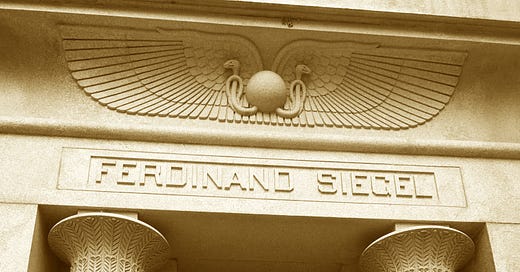



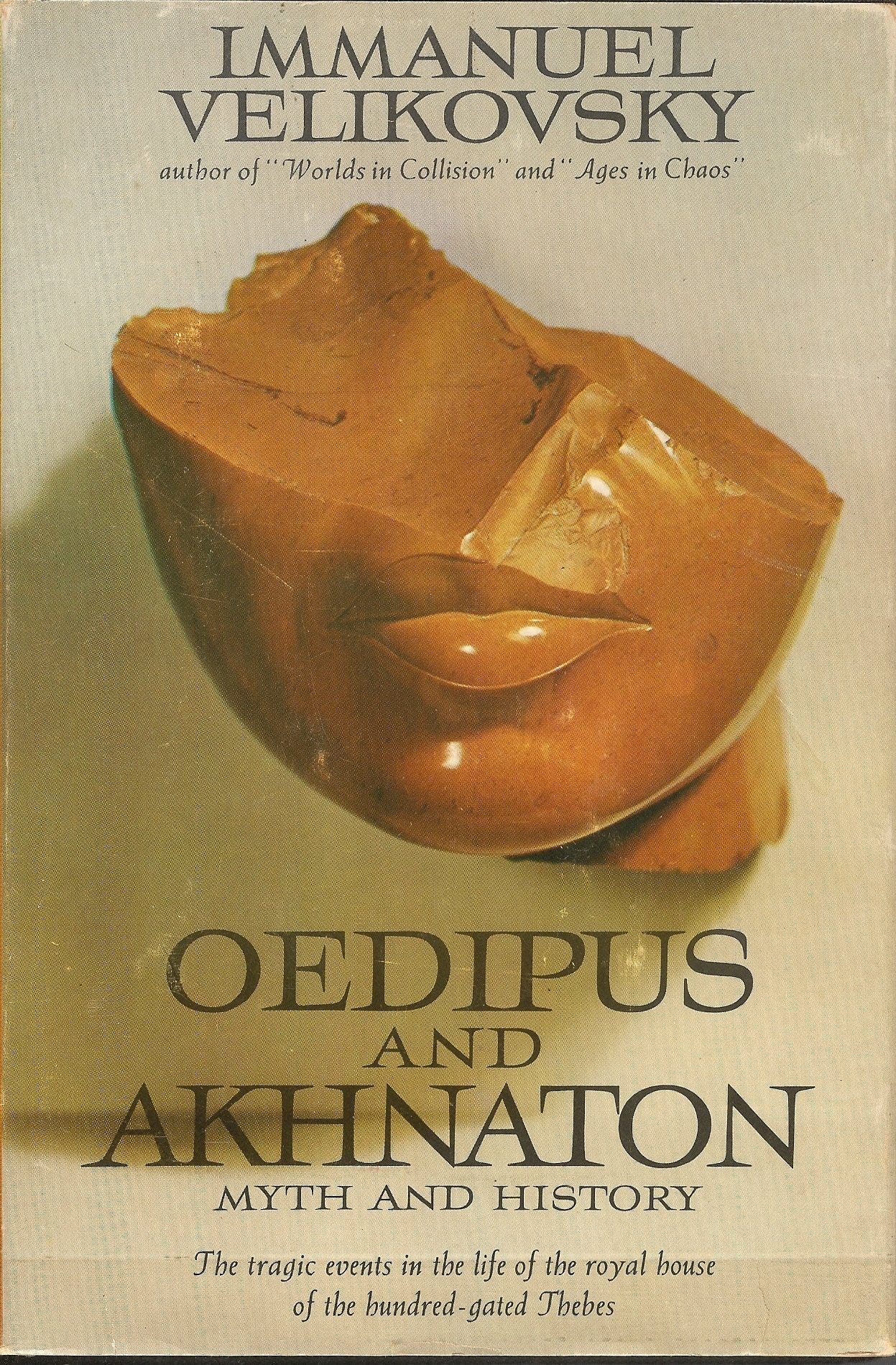
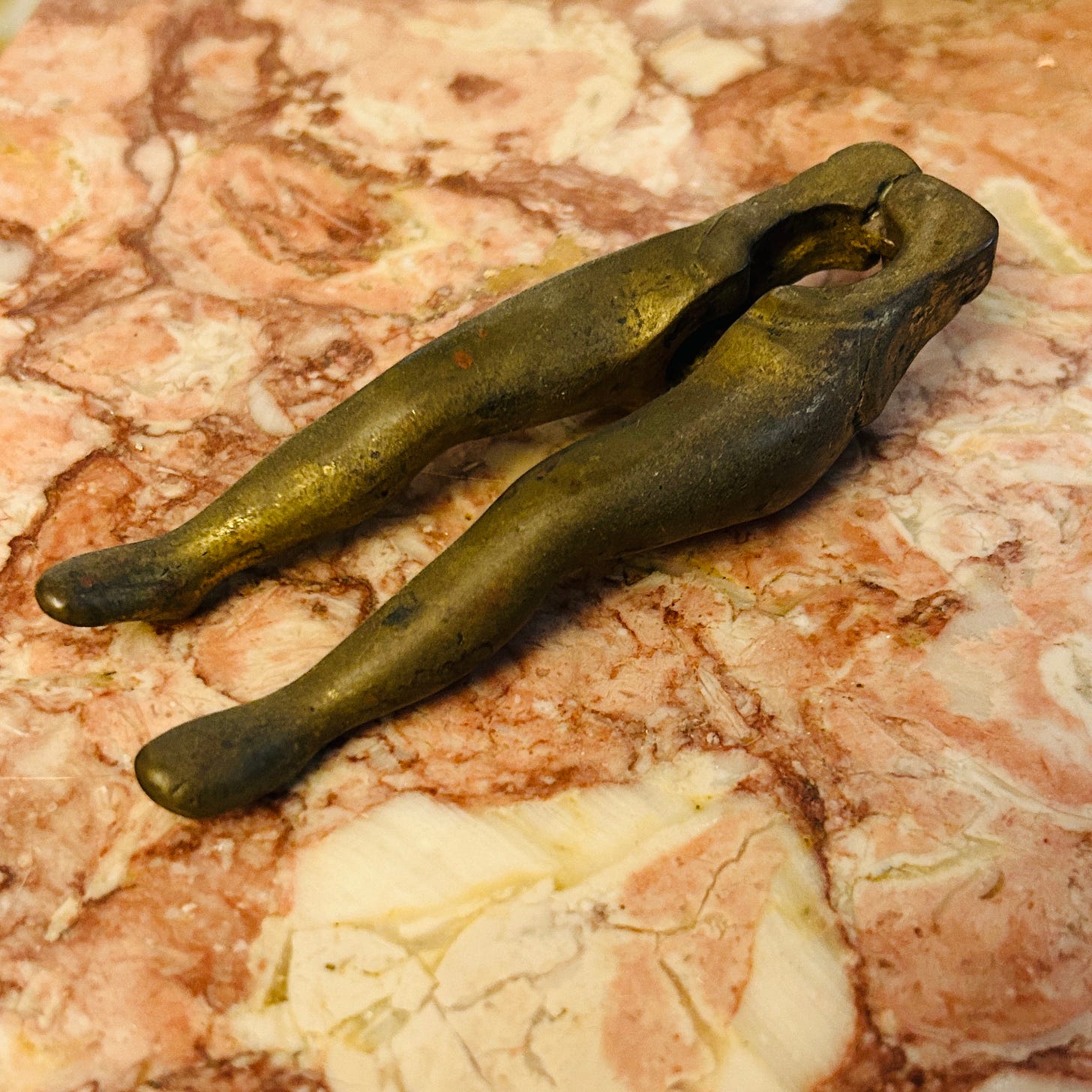
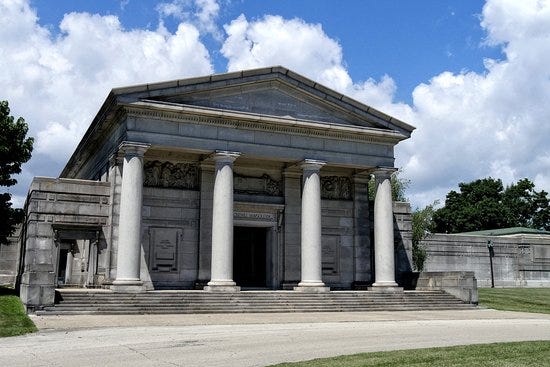
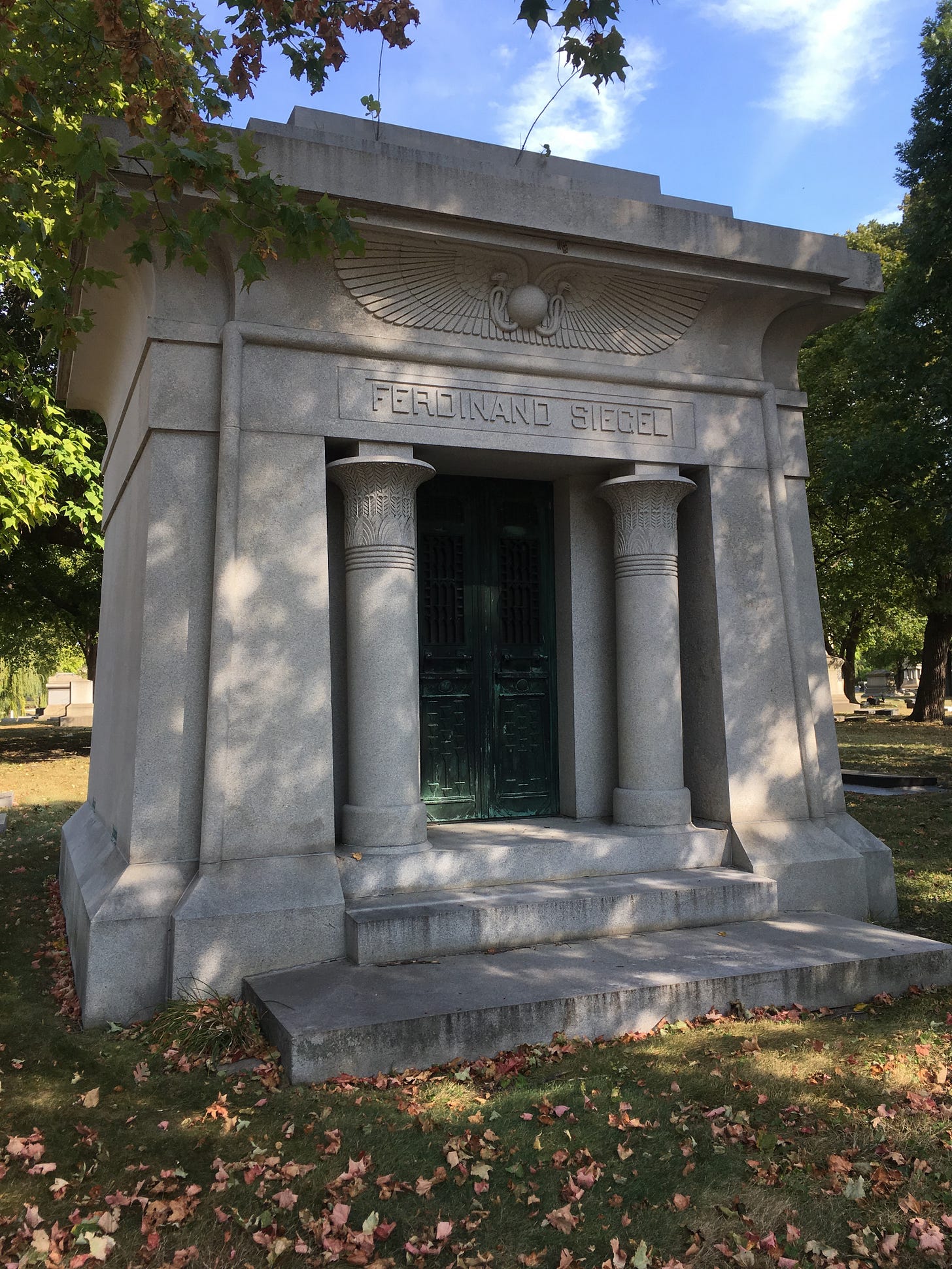
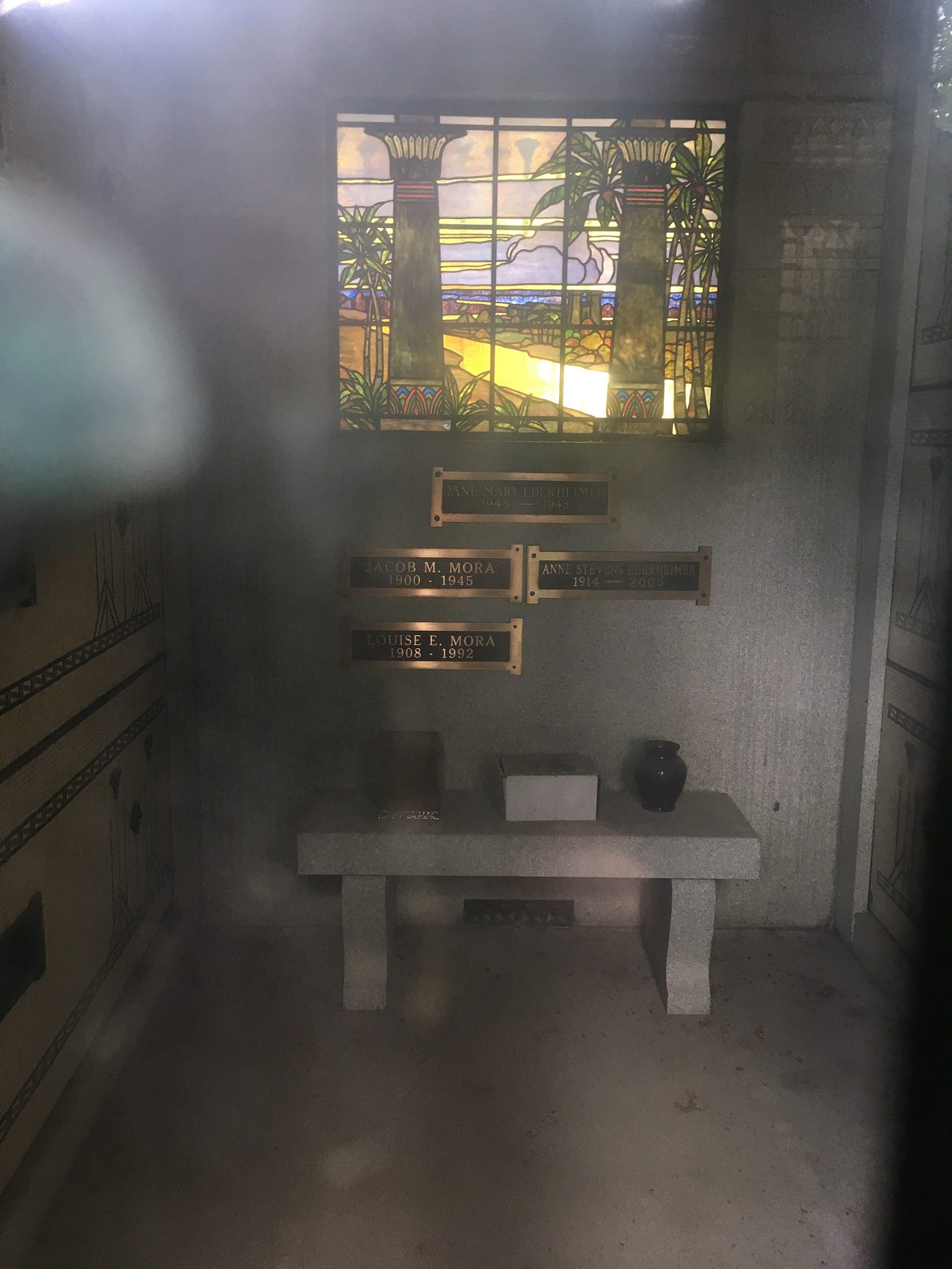
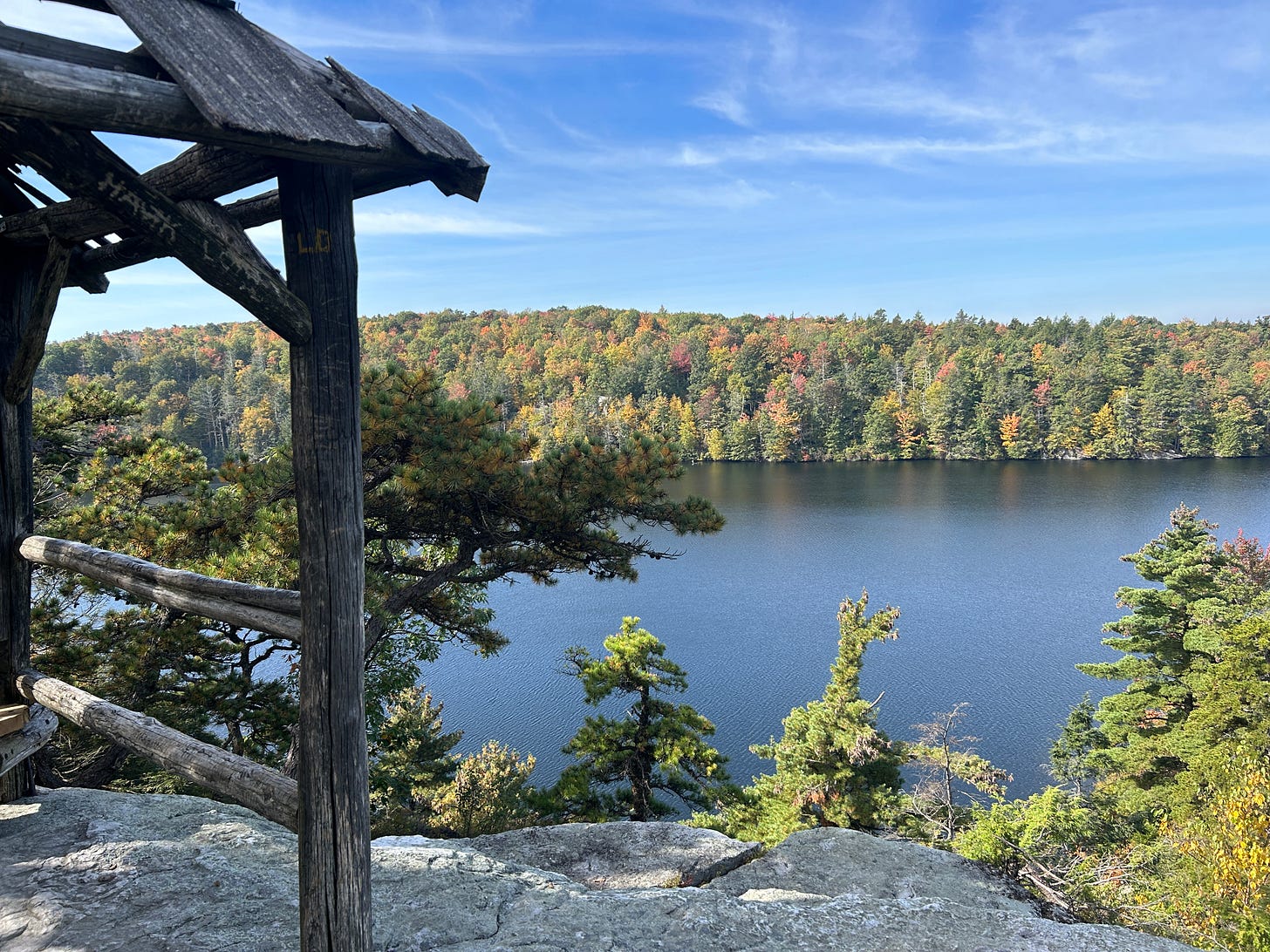
Beautifully told by both of you—or all three!
What a fantastic and beautifully told story, thanks Dan! I’m a firm believer in the adage that “coincidence is god’s desire to remain anonymous”. Whatever your conception of a god, higher power, the universe, etc (or whether you have no conception of such things at all), there were just way too many decision points that led you to Louise. For whatever reason, you were meant to find her that day.